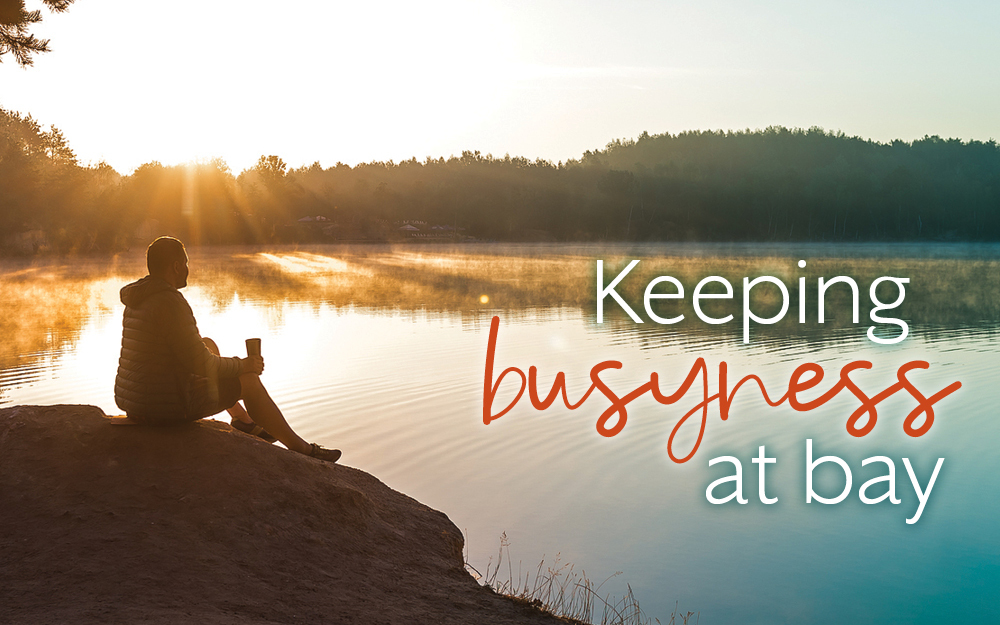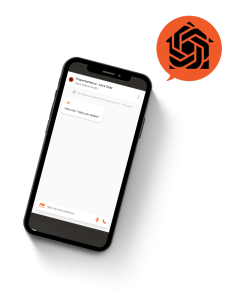Keeping busyness at bay

About the author
Jane Slack-Smith has been named one of the Top 10 Property Experts in Australia by Money Magazine, one of the Top 4 Financial Influencers by Qantas and been awarded the Australia’s Mortgage Broker of the Year twice.

We’ve had some adjusting to do over the past couple of years in terms of our time commitments. Many of us have had to deal with limitations around what we were able to do when lockdowns were implemented and conversely when restrictions are lifted there is a period of adjustment as the pace of our lives picks up again.
While it’s wonderful to be able to throw ourselves back into the flurry of work and a hectic social life, there is often a fine line between living a rich and fulfilling life and a stressful one. If you’re exhausted by the time the weekend rolls around and feel like there’s an ever-growing list of things to do in an ever-shrinking time span, you are not alone. According to the Australian Psychological Society’s annual survey, three in four Australians believe stress is affecting their health.i
This could have something to do with the fact that we are among the most wired citizens on earth. Australia outranks both the UK and the US in smartphone ownership. We’re equipped with time-saving technology but that 24/7 connectivity means we feel busier than ever, with emails, messages and app notifications scattering our concentration.
In Overwhelmed: Work, Love and Play When No One Has a Minute, US journalist Brigid Schulte describes this sense of being constantly behind as the ‘modern overwhelm’. She argues that we have come to equate busyness with success, yet research shows that working in 90-minute bursts with breaks in between is more efficient than working longer hours.ii
TIPS TO ACHIEVE CALM
Plan
Productivity experts recommend making a to-do list each evening to mentally prepare for the following day, remembering to prioritise the tasks on that list. At the same time, they warn against over-scheduling; you need time in between appointments to digest what has been discussed and to mark your progress.
Focus
Multi-tasking is increasingly being shown to be detrimental to productivity and successful outcomes. Focussing on one thing at a time with your undivided attention can lead to greater success and less stress. Setting fixed times for responding to emails, as well as an auto-reply communicating this to senders, can also have a big effect on how harried you feel throughout the day.
Respond to signs of stress
Recognising when you’re overwhelmed is essential to your long-term health. It’s important to recognise warning signs such as feelings of fatigue and tightened muscles. Then you should look at whether your diet, exercise and sleep patterns need to change, as well as how connected you feel to a support system.
Diet and exercise
Rather than reaching for the sugary biscuits for an energy boost on a stressful day, healthy snacks or a small piece of dark chocolate can provide more of a calm-inducing endorphin hit. Better still, get moving. It’s well known the release of endorphins triggered by exercise can relieve feelings of stress, while research published in The British Journal of Sports Medicine confirmed that taking a 10-minute walk through a green space rather than an urban one is the quickest way to induce calm.iii
Calm your mind
Meditation and yoga are popular stress busters, but there’s no one-size-fits-all method. You may wish to carry out a mindfulness exercise on your commute home or having another ritual to break the day between work and leisure, such as changing your clothes, to diffuse feelings of stress. The power of music to relieve anxiety is scientifically proven, but that doesn’t have to mean Mozart or whale sounds – creating ‘pump-up’ and ‘calm-down’ playlists that are personal to you will be most effective.
… and take control
Psychologists and business coaches agree that being realistic about what you can achieve each day and having the confidence to say ‘no’ when asked to do more is vital to maintaining a healthy outlook and fulfilling life. That might mean turning off the iPhone right after you read this.
i http://psychologymelbourne.com.au
iii ncbi.nlm.nih.gov/pubmed/23467965 OR http://goo.gl/bIjnkp





